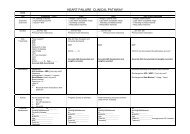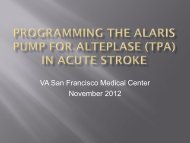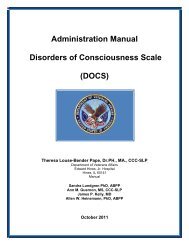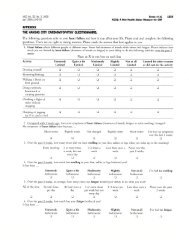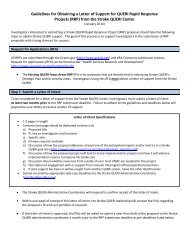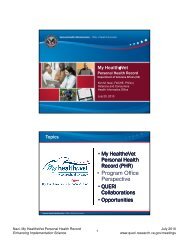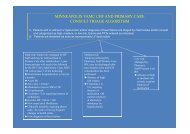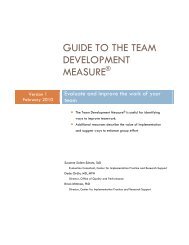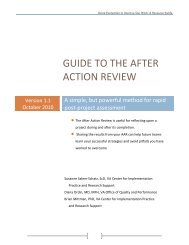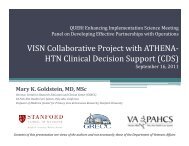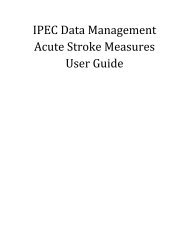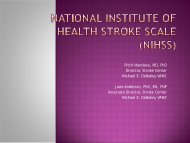The Veteran Supported Education Service Treatment Manual: VetSEd
The Veteran Supported Education Service Treatment Manual: VetSEd
The Veteran Supported Education Service Treatment Manual: VetSEd
You also want an ePaper? Increase the reach of your titles
YUMPU automatically turns print PDFs into web optimized ePapers that Google loves.
E. <strong>Supported</strong> <strong>Education</strong> as a VA Recovery <strong>Service</strong><br />
<strong>The</strong> VHA has taken strong leadership in the design and delivery of recovery oriented<br />
mental health services. For example, the Peer Support Technician (PST) is a new<br />
category of employment in which <strong>Veteran</strong> peers are hired and trained to deliver recovery<br />
oriented services. As <strong>Veteran</strong>s explore their recovery goals, education will no doubt be<br />
among a goal for many of them. Peer technicians can be trained to deliver supported<br />
education along with their other duties. Another recovery initiative is the Psychosocial<br />
Rehabilitation and Recovery Centers (PRRCs). <strong>The</strong>se Centers (VHA Handbook 1160.01,<br />
US Department of <strong>Veteran</strong>s Affairs, 2008) transform older day treatment programs into<br />
ones that help <strong>Veteran</strong>s challenged with serious mental illness and significant functional<br />
impairment recovery, to integrate into meaningful, self-determined community roles. Due<br />
to natural linkage between recovery services, psycho-social services and supported<br />
education, a logical place for supported education would be among this menu of mental<br />
health services. For example, PRRCs could well emphasize and deliver supported<br />
education, as could PST. A drawback to this approach again is the nature of the younger<br />
less functionally impaired OIF/OEF/OND <strong>Veteran</strong>s with PTSD. <strong>Veteran</strong>s with PTSD<br />
may not be appropriate for PRRC‘s.<br />
F. <strong>Supported</strong> <strong>Education</strong> and Homeless Prevention<br />
As stated above, there is substantial evidence that education is highly correlated with<br />
income and socio-economic status, including positive housing status. <strong>The</strong> risks of<br />
homelessness to Post 9/11 <strong>Veteran</strong>s are much greater than those posed to <strong>Veteran</strong>s from<br />
other eras. OIF/OEF/OND <strong>Veteran</strong>s are becoming homeless at a faster rate and at a<br />
greater proportion than Vietnam era <strong>Veteran</strong>s. <strong>The</strong> VHA is undertaking important<br />
initiatives to prevent OIF/OEF/OND homelessness as part of the overall commitment to<br />
end <strong>Veteran</strong> homelessness by 2014. <strong>The</strong> Homelessness Prevention Demonstration<br />
Program has offered hundreds of OIF/OEF/OND <strong>Veteran</strong>s a case manager and peer team<br />
combined with efforts from the local career centers of the Department of Labor aimed at<br />
improving employment outcomes and maintaining housing. A natural extension of this<br />
program would be the addition of supported education services, as many of the same<br />
<strong>Veteran</strong>s also have education goals. Thus, this is another possible home for <strong>Veteran</strong>s<br />
supported education service.<br />
208 | P a g e



